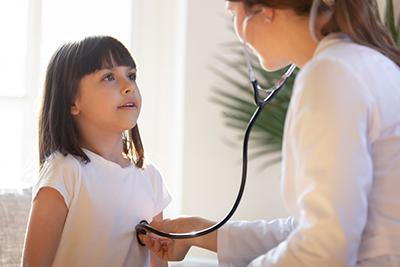
When your child begins school, it’s time for your child to begin having school physicals by a pediatrician. School physicals are a great way to help ensure the continuing health of your child. They should be performed every year to make sure your child stays healthy.
Regular school physicals can help identify, prevent, and treat acute and chronic diseases including allergies, asthma, heart issues, and more. When medical issues are identified early, your child has a chance to regain health before school begins.
During your child’s school physical, your pediatrician will:
- Perform a comprehensive physical examination
- Check your child’s respiration, eyes, nose, throat, and ears
- Perform a vision and hearing screening
- Record your child’s height, weight, blood pressure, pulse, and temperature
Immunizations are another vitally important part of your child’s school physical. In fact, immunizations are required for your child to attend school. You must also show proof that your child is current on immunizations. Your pediatrician can give you the documentation you need.
According to the Centers for Disease Control or CDC, recommended and required immunizations from birth to age 18 are:
- Hepatitis B
- Diphtheria, Tetanus, Pertussis
- Haemophilus influenza type B
- Polio
- Pneumococcal conjugate
- Rotavirus
- Measles, mumps, rubella
- Chickenpox
- Hepatitis A
- Human papillomavirus
- Meningococcal conjugate
- Flu
- Covid
If your child wants to play a sport, a sports physical may be combined with the school physical. A sports physical helps determine whether your child is healthy enough to play a sport.
During a sports physical, your pediatrician will also check your child’s balance, reflexes, flexibility, muscle strength, and breathing, to determine how your child might react while under physical stress.
Schools, sports, and exposure to other students provide a breeding ground for illness. Regular school and sports physicals, immunizations, and early treatment can help your child stay healthy during the school years and beyond. To find out more about school physicals, call your pediatrician today.








